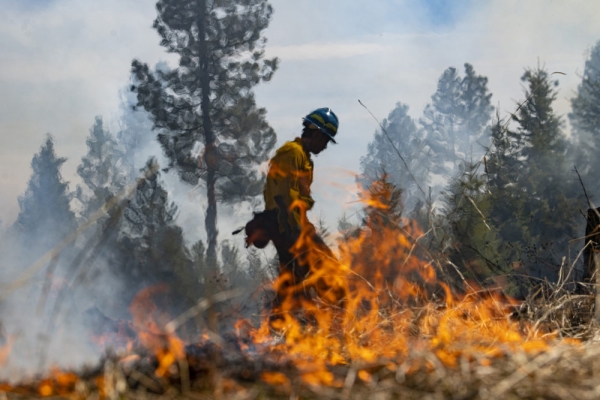While forest managers have proved adept of stamping out small wildfires, they have been less successful at suppressing larger, more devastating burns.
While forest managers have proved adept of stamping out small wildfires, they have been less successful at suppressing larger, more devastating burns. The result is that the average wildfire is more severe than it would be without human intervention.
This phenomenon, called “suppression bias,” is reshaping forests. Scientists compared “suppression bias” to the overuse of antibiotics, which has been shown to eliminate all but the most potent of infections. With fire suppression, as generally practiced, forest managers are extinguishing all but the most ferocious of blazes, according to a new modeling study in Nature Communications.
With climate change, hotter, drier weather is fueling more intense burns globally, as is the buildup of trees and brush from decades of fire suppression. The new study suggests “suppression bias” is only making matters worse.
Read more at: Yale Environment 360
Photo Credit: Tommy Martino/University of Montana




